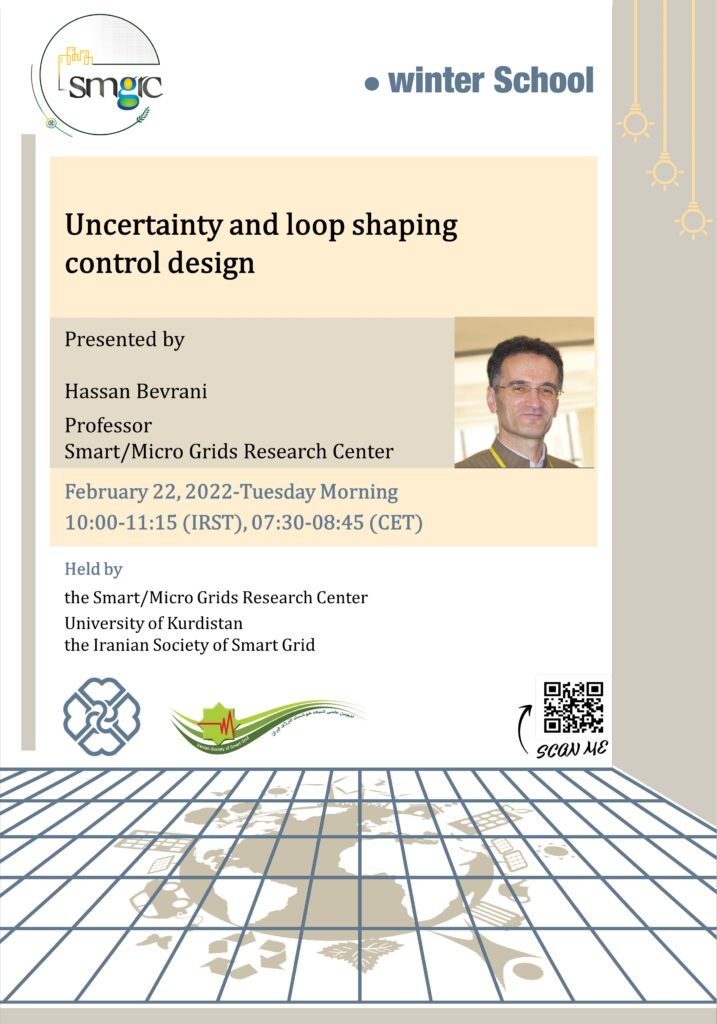
About the Presenter
Hassan Bevrani received a Ph.D. degree in electrical engineering from Osaka University in 2004. He is a full professor and the Program Leader of the Micro/Smart Grids Research Center (SMGRC) at the University of Kurdistan. Over the years, he has worked with Osaka University, Kumamoto University, Kyushu Institute of Technology, Doshisha University, Nagoya University (Japan), Queensland University of Technology (Australia), Centrale Lille (France), and Technical University of Berlin (Germany). He is the author of 8 international books, 15 book chapters, and more than 400 journal/conference papers. He has been the guest editor of 4 volumes of Elsevier Energy Procedia and Energy Reports journals. His current research interests include Robust control theory and applications, Smart grid operation and control, Power system stability, Microgrid dynamics and control, and Intelligent/robust control applications in the power electric industry.
General Information:
This course will be useful for …
The aims of this course are …
Where and how you can use this knowledge?
The robustness of closed-loop systems to disturbances and uncertainties has always been the central issue in feedback control. This lecture introduces some essentials of robust control theory. Uncertainty modeling and robust control synthesis using the loop shaping method is explained. The lecture makes a bridge between the fundamental knowledge of linear control systems and the main concepts of robust control theorems. It means that the analytical/graphical tools used in linear control systems such as Bode and Nyquist diagrams, as well as loop transfer function models are used to perform the synthesis elements of robust controllers. Both single-input single-output (SISO) and multi-input multi-output (MIMO) dynamic systems are considered as examples.
Various types of uncertainties that can arise in physical systems are briefly discussed. Some robust stability tests for systems under various model uncertainty assumptions are obtained through the use of the small gain theorem.
The lecture is focused on the basic robust and Hꚙ control theory. Therefore, the prerequisite for attending this lecture is some basic knowledge of classical linear control systems and state-space theory. Two important problems of robust control analysis (given a controller, then check closed-loop robustness) and robust control synthesis (design a controller to satisfy the closed-loop robustness) are addressed. The terms of nominal stability, nominal performance, robust stability, and robust performance are defined using the linear fractional transformation (LFT) representation.
It is explained how to formulate some performance objectives into mathematically tractable problems in terms of requirements on the sensitivity functions and/or complementary sensitivity functions. In this direction, the role of choosing appropriate weighting functions is emphasized, and a simple and effective method for selecting a first-order weighting function to track the performance objective or to model an unstructured uncertainty is addressed.
In this lecture, the application of Kharitonov’s theorem in control system analysis and synthesis is also introduced. In the end, the application of structured singular value theory for robust controller design in the presence of structured uncertainties is briefly discussed.